
Center of Genomics, Evolution and Medicine
Team
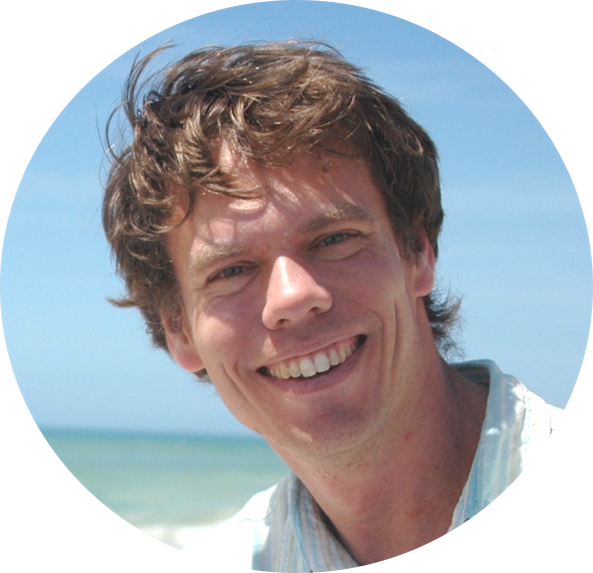
Jon Anders Eriksson, PhD, ERA Chair holder,
Associate Professor of Interdisciplinary Research in Genomics
Dr Eriksson is a broadly trained evolutionary geneticist working with computational modelling and quantitative analysis at the intersection of medical genomics, anthropology, population genetics and palaeoecology. He has a strong track record in developing novel quantitative analysis that brings together information from a wide range of fields, including bioinformatics, palaeoclimate, geography and ancient and modern DNA, to investigate human evolution and reconstructing the demographic history of past and present populations.
His current research is focussed on how adaptations to past climates, diets and pathogens have shaped genetic diversity in contemporary populations and the role of these changes in common metabolic, cardiovascular and immune mediated diseases. To investigate these questions, he is using an interdisciplinary approach that bridges the fields of mathematics and statistics, evolutionary biology and medical genomics. Specifically, it combines biomedical and genetic information with development of methods and tools to identify novel variants under recent selection in human populations, reconstruct the evolutionary history of disease associated variants, understand the interplay between genetic variants in disease aetiology and use this information under a unified framework to improve disease risk prediction.

Jose Rodrigo Flores, junior researcher
Junio Researcher of Bioinformatics, Institute of Genomics
He is a PhD student under cGEM and his project revolves around the assessment of the conditions that allow aDNA imputation for subsequent analysis such as selection scans on human populations. He plans to leverage these results in order to better model and study past human adaptations to their local environments. He has a broad interest in evolutionary genetics, genomics, bioinformatics and data science.
Bayazit Iunusbaev, PhD, associate professor
Associate Professor of Evolutionary Immunology, Institute of Genomics
Ivan Kuznetsov, junior researcher
Junior Researcher of Genomics, Institute of Genomics
Research Group of Evolutionary and Population Genomics

Michael Dannemann, PhD, associate professor
Associate Professor of Evolutionary and Population Genomics, Institute of Genomics
He is a computational biologist with an interest in studying evolutionary aspects of phenotype-associated variation in present-day humans. His work is particularly focused on investigating the role of admixture with Neandertals or Denisovans in these processes. The research aims to identify the environmental forces that have shaped human biology in the past.
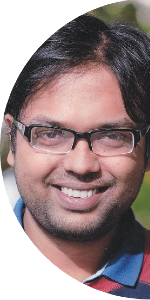
Mayukh Mondal, PhD, researcher
Research Fellow of Evolutionary Genetics, Institute of Genomics
His research seeks to combine medical genomics of complex traits with evolutionary genomics by the help of neural networks. He has quite extensively worked with evolutionary migration models, selection and introgressions in diverse human populations (Andamanese, Indian, Papuan etc). He has finished his PhD in 2016 at University of Pompeu Fabra (Barcelona, Spain). He has published 12 scientific journals in total (several of them is high impacted journals i.e. Nature Genetics, Nature Communication, Cell etc).
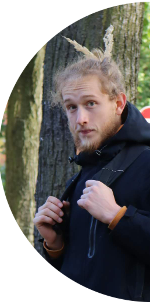
Danat Yermakovich, PhD student, junior researcher
Junior Research Fellow of Evolutionary Genetics, Institute of Genomics
He graduated as a geneticist at Belarusian State University (Specialist Graduation, Diploma summa cum laude, 2017; Master Graduation, major in Genetics, 2018). In Belarus, Danat worked on pathogenic mutations identifying in patients with non-coronary heart diseases by targeted NGS Illumina, both in wet and dry labs. He participated at a few bioinformatics shools and has 2 journal publications. Despite Danat was engaged a long time in quite routine NGS data processing, he strongly interests in different statistical population analyses such as GWAS, PRS, kinship, clustering. The theme of his PhD study sounds as “The evolutionary history of complex traits”. The main aim is to find and record the genetic variants that were under selection pressure during the last 20,000 years as well as point out the consequences of these adaptations for health in present-day populations.

Mathilde André, PhD student, junior researcher
Junior Research Fellow of Evolutionary Genetics, Institute of Genomics
Her research focuses on studying local adaptation in PNG populations, with a particular interest in understanding the genetic and phenotypic differences between highlanders and lowlanders in response to distinct environmental pressures and stress the complex interplay between genetic variation, environmental pressures, and local adaptation in PNG populations. She is also exploring the possibility of an early out of Africa contribution to Papuan populations.
Research Group of Bioinformatics and Medical Genomics
Georgi Hudjašov, PhD, associate professor
Associate Professor of Bioinformatics and Medical Genomics (0.5 position), Institute of Genomics
His work takes advantage of modern high-throughput sequencing technology, computational and quantitative methods to answer fundamental questions in human evolution and population genetics. His main area of research is prehistory of modern humans in Oceania and beyond. During his postdoctoral study at Massey University, New Zealand, he concentrated on deciphering different demographic processes in this part of the world, including migrations, admixture, adaptation and more recently archaic Denisovan introgression in Indonesia and Papua.
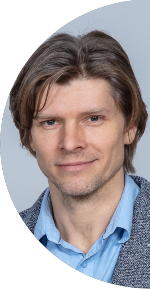
Tõnis Org, PhD, associate professor
Associate Professor of Bioinformatics and Medical Genomics (0.3 position), Institute of Genomics
His research combines novel method development with functional genomics and chromatin biology to understand tissue specific gene regulation focusing on mesoderm derived tissues such as cardiovascular and hematopoietic systems. In addition to the cGEM position, he is also associate professor of biotechnology at the Institute of Molecular and Cell Biology, University of Tartu. He has a PhD from University of Tartu and did his postdoc in University of California, Los Angeles.
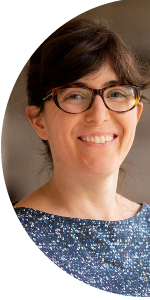
Irene Gallego Romero, PhD, associate professor
Associate Professor of Bioinformatics and Medical Genomics (0.2 position), Institute of Genomics
She studies the contributions of gene regulatory change to human and primate evolution, whether ongoing or ancient. Her research is both computational and experimental, and she has a long-standing interest in applying high-throughput functional genomics approaches to evolutionary questions, including interspecies comparisons. Beyond her role in cGEM, she is currently a lecturer in systems genetics at Melbourne Integrative Genomics, and a member of the School of BioSciences and the Centre for Stem Cell Systems at the University of Melbourne. She was awarded a Sir Henry Wellcome Trust Fellowship as a postdoctoral researcher to establish pluripotent stem cell lines from non-human apes as a resource for comparative primate genomics. Since moving to Australia in 2017 her research has focused on the evolutionary challenges of peopling Island Southeast Asia, with particular focus on the contributions of Denisovan introgression to modern-day humans and the population genomics of the Indonesian archipelago. She has a PhD from University of Cambridge.
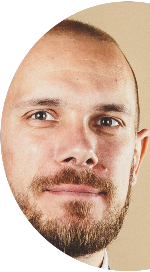
Vasili Pankratov, PhD, researcher
Research Fellow of Bioinformatics and Medical Genomics, Institute of Genomics
His previous research focused on population genetics and revealing demographic events and action of natural selection from the pattern of present-day human genetic variation. The main aim of his work in cGEM is making use of population genetics knowledge, mostly signals of natural selection, to better understand the contribution of genetic variants to phenotypic variation in humans. In addition to the cGEM position, he is also a lecturer at the Institute of Molecular and Cell Biology, University of Tartu. He has a PhD from Institute of Genetics and Cytology, Minsk, Belarus.
Rita Kreevan, PhD student, junior researcher
Junior Research Fellow of Bioinformatics and Medicine Genomics
She is a dedicated functional genomics enthusiast. She graduated in gene technology from the University of Tartu and joined cGEM team as a PhD student. Her previous work has focused on generating knock-out with CRISPR/Cas9 system to understand the role of genes that are linked to hematopoiesis. In her PhD, she focuses now on combining the power of functional genomics to understand gene regulatory function of genetic variants and how they affect phenotypic variation in present day population.
Annika Trei
Senior Laboratory Technician, Institute of Genomics
Katariina Kordemets
Cell-culture specialist, Institute of Genomics
Kadi Kutser
Cell-culture Laboratory Technician, Institute of Genomics
Research Group of Molecular Medicine
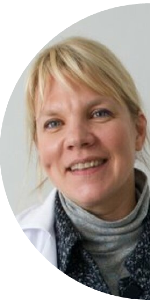
Kaia Palm, PhD, associate professor
Associate Professor of Molecular Medicine (0.6 position), Institute of Clinical Medicine
She is a strong advocate of shifting personalized medicine towards immune profiling. She has headed the team developing next generation phage display method that allows in-depth profiling of antibody immune response. She is the founder of Protobios and has 15+ years of experience in academia. She is the co-inventor of MVA.
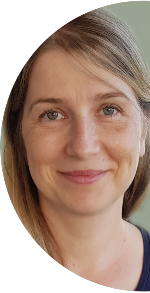
Helle Sadam, PhD, researcher
Researcher of Applied Immunology, Institute of Clinical Medicine
She has about 10 years’ experience in biomarker research and validation. She is a part of the team applying and advancing a high throughput method of immunoprofiling for analysis of the whole antibody repertoire (MVA). Her research concentrates on humoral immunology connected with genetics and medicine.

Nadežda Pupina, MSc, specialist
Specialist of Clinical Medicine, Institute of Clinical Medicine
She obtained Master’s Degree in gene technology from Tallinn University of Technology. In TalTech she has been a member of molecular neurobiology research group. Later, she became a member of Protobios team focusing on deciphering immunome and finding new precise biomarkers using high-throughput MVA technology. She likes to combine data analysis and molecular biology techniques for finding answers to complex questions.
Regina Maruste
Assistant of Clinical Medicine, Institute of Clinical Medicine
Laura Tamberg
Specialist of Clinical Medicine, Institute of Clinical Medicine
Other team members
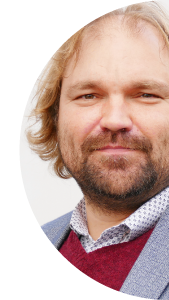
Mait Metspalu, PhD, project leader
Director of the Institute of Genomics, Professor of Evolutionary Genomics
His research concentrates on using and developing population genetics approaches to understand the genesis of the genetic diversity patterns of humans through reconstructions of past population movements, splits and admixtures as well as adaptations to local environments (both natural and manmade). During the few past years he has also started a dedicated ancient DNA program aiming mostly at reconstructing population changes in the East European Plain since the Paleolithic. His research has been funded through several research and infrastructure grants from Estonian and EU funding schemes.

Andres Salumets, PhD, WP leader
Professor of Reproductive Medicine at the Institute of Clinical Medicine and visiting professor of University of Helsinki in Finland
Together with his team he has studied the genetic predisposition (including polygenic risk scores) as a personalised medicine approach for several diseases. His team has also developed non-invasive genetic testing technologies, focusing on the use of cell-free DNA (cfDNA) and its epigenetic markers in prenatal diagnostics and oncology. He has published over 150 publications and he has received funding for his research for over €10 million from FP7 and H2020 funding schemes, including the recently finished EU FP7 Marie Curie Industry-Academia Partnerships and Pathways grant SARM (GA 324509) and ongoing H2020-TWINN-2015 project WIDENLIFE (GA 692065). He is the co-inventor for three patent applications and one granted patent.
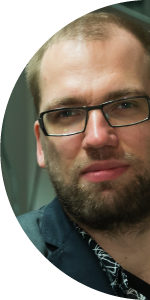
Tõnu Esko, PhD, WP leader
Professor of Human Genomics and vice director at the Institute of Genomics, Estonian Biobank Innovation Centre
He did his first PostDoc at Boston Children’s Hospital and Harvard Medical School (Prof. J. Hirschhorn) and second PostDoc at Broad Institute of Harvard and MIT (Prof. E. Lander). He has been responsible for coordinating international collaboration projects both with academic institutions and private sector. He has co-authored more than 250 research articles, including more than 10 lead first or last author studies in high impact journals (Nature, Nature Genetics, PNAS etc). His main contributions are on the field of molecular diagnostics, human genetics and genomics and biobanks. He is the co-inventor for two granted patents.

Merit Kreitsberg, project manager
Project manager of international projects at the Institute of Genomics
She has a masters degree in Zoology and Hydrobiology from Univerity of Tartu. She has been working in Estonian Genome Centre since 2008. She started working with national and international grants at 2015 as a project assistant and is currently working as a project manager for international projects in Institute of Genomics of University of Tartu.
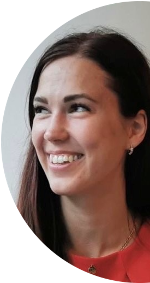
Kaisa Kuus, project manager
Project manager of international projects at the Institute of Genomics
She has masters degree in Biomedicine from University of Tartu. She has been working in Institute of Genomics of University of Tartu as a project manager for international projects since 2021. Previously she worked as a chief specialist in Estonian Veterinary and Food laboratory and as a senior inspector in Health Board.

